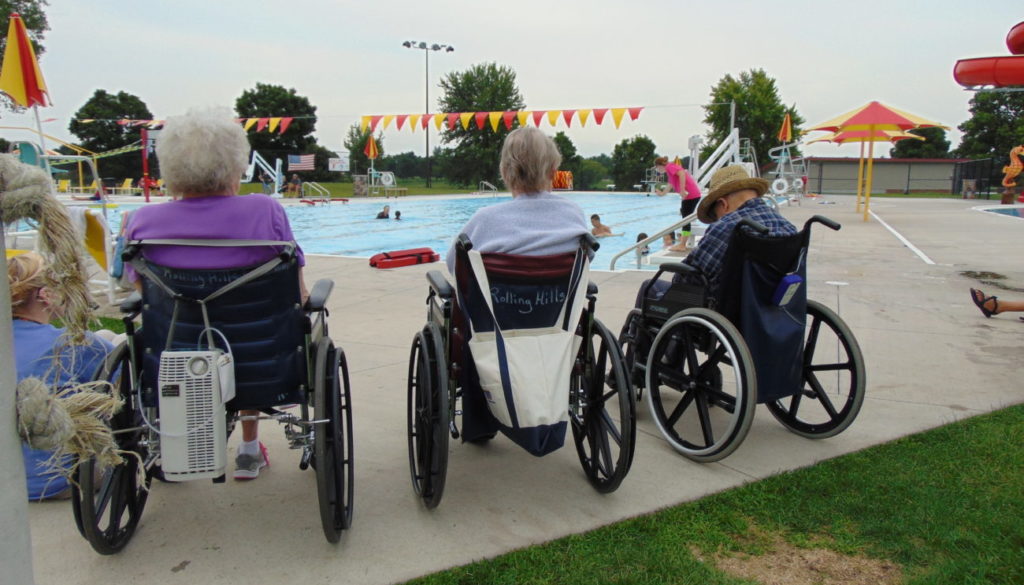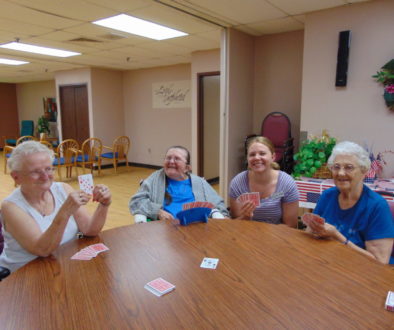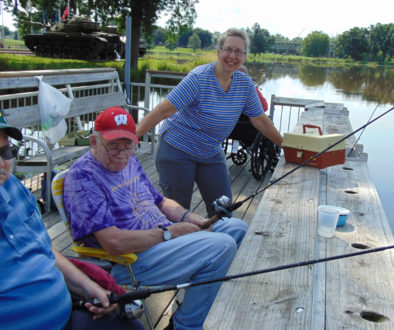Ongoing Volunteer Training
Communication Tips When Interacting with Dementia Residents
Non-verbal communication (body language, voice tone, facial expressions) relay great amounts of information to the cognitively impaired adult. Clear communication is the essence of any quality interaction.
Changes in the ability to communicate are unique to each person with Alzheimer’s. In the early stages of dementia, the person’s communication may not seem very different or he or she might repeat stories or not be able to find a word. As the disease progresses, a caregiver may recognize other changes such as: Using familiar words repeatedly, Inventing new words to describe familiar objects, Easily losing his/her train of thought, Having difficulty organizing words logically, Speaking less often.
Helping the Person with Alzheimer’s Communicate: People with Alzheimer’s and other dementias have more difficulty expressing thoughts and emotions and understanding others. Here are some ways to help the person with Alzheimer’s communicate: Be patient and supportive, Offer comfort and reassurance, avoid criticizing or correcting, avoid arguing, Offer a guess, Encourage unspoken communication, Limit distractions, Focus on feelings, not facts.
Best Ways to Communicate: identify yourself, call the person by name, use short/simple words/sentences, speak slowly and distinctively, wait for response, repeat information/questions as needed, avoid confusing/vague statements, give visual cues, avoid quizzing, treat the person with dignity and respect.



